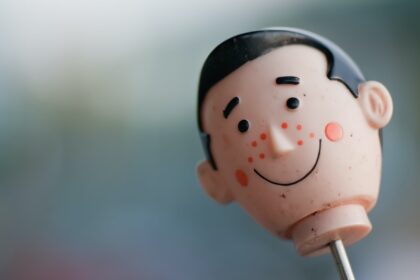Acne and eczema: How to look after your skin
The skin is a truly incredible organ, and the largest organ we have in fact. Not only does it act as the first line of defence against bacteria and viruses, it also helps regulate our temperature.
But as hardy as it is, our skin may behave differently depending on what we’re eating, how much exercise we’re doing, and at different stages of our lives. Keeping our skin happy and healthy is closely linked to the maintenance of our overall health, and skin problems should be treated properly and quickly.
This article explores the two most common skin conditions – acne and eczema – outlining their common symptoms and suggesting how best to treat these.
What is acne?
Acne is often thought of as a skin condition affecting the faces of teenagers, resulting in red spots. It is true that the majority of people will experience acne between the ages of 12 and 24 whilst they’re going through hormone changes, but it’s not uncommon for people to experience acne much later in life.
While red spots are also a common symptom, acne can appear in many different ways, such as pimples, blackheads, cysts or blotchiness, and typically affects the face, back and/or chest areas.
How can you treat acne?
Here are some ways you can treat acne:
- Over-the-counter treatments are very popular for addressing acne symptoms. Topical treatments that are effective include creams and gels such as Differin, containing the anti-inflammatory medicine Retinoid Adapalene that’s highly effective at reducing the formation of whiteheads and blackheads on the outer layer of skin.
- You may also use witch hazel, which has been scientifically proven to help people treat skin conditions like acne, inflammation, hemorrhoids, irritation, bug bites, and more. If you already have one in your medicine cupboard, it is important to check it is still in date. So, before you use it, look for articles on how to tell if witch hazel is expired.
- Prescription medication is most suitable for those suffering from moderate to severe acne, the popular Epiduo Gel is known to show visible signs of skin healing after just 1 week of daily application.
- Wash your face only once or twice per day (no more) using mild soap and lukewarm water, being careful not to exfoliate too hard.
- Stress can often make acne symptoms worse, so try to reduce the amount of daily stress you have. To achieve this, get a plentiful night’s sleep, exercise regularly, and identify the stress triggers in your life which you can work towards removing or limiting their impact.
- Drink plenty of water – hydration is key to healthy skin.
What is eczema?
One in five children are affected by eczema, characterised by itchy and irritated skin, usually appearing as cracked or dry patches of skin. Eczema manifests as red inflammation on lighter skin, or purple or grey areas of darker skin.
If you have this condition, you’re likely to have dry skin, and the lack of water retention leaves the skin vulnerable to triggers such as perfumed soaps, cold weather, and synthetic fabrics. Although not entirely defined by genetics, the condition is partly hereditary, so you are more likely to develop eczema if an immediate family member has the condition.
How can you treat eczema?
Here are some ways you can that eczema:
- Topical corticosteroid creams are a quick and easy method of treating eczema outbreaks, and are available over-the-counter without a prescription. The ingredients are anti-inflammatory, but these medications are tailored to areas of the body other than the face, as they can sometimes aggravate the skin on the face.
- Emollient creams, sprays and lotions are great at hydrating the skin, creating a layer on the skin that traps in moisture. The anti-microbial components of some emollients such as Dermol 500 provide almost instant relief from itchiness and irritation.
- Standard antihistamines can also be used in the treatment of more severe eczema symptoms.
- Wearing light long-sleeved clothes or bandages helps to protect the skin from outside triggers, whilst also acting as a barrier between the nails and the affected area when you feel the need to itch.
For more information on skin care, along with a range of acne and eczema treatments, you can visit the online pharmacy Pharmica today.










